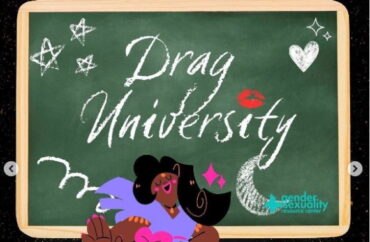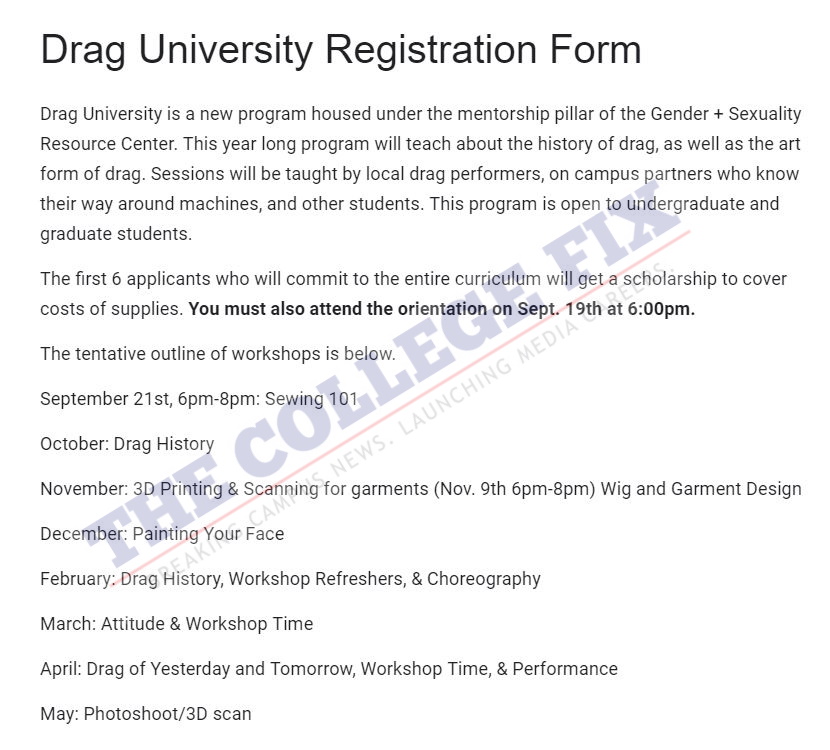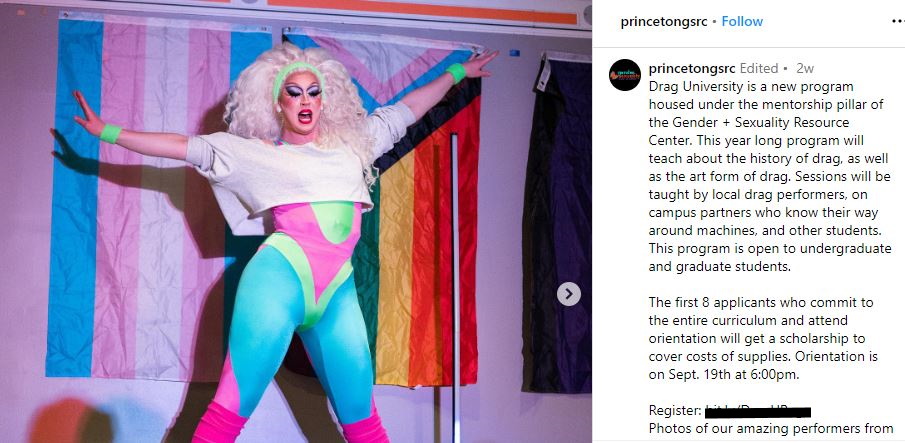
First six students to enroll and attend orientation will receive scholarships to cover cost of supplies
A new “Drag University” program launched at Princeton University will train students in the “artform.”
The program is offered through the school’s Gender + Sexuality Resource Center and is open to all undergraduate and graduate students interested in the world of drag, according to the center’s Instagram page.
Throughout the 2023-24 school year, enrolled participants will cover an array of topics, including the history of drag, “Sewing 101,” choreography, face painting, photoshoots and other topics, according to the program’s registration form.
The form was updated this week to note: “At this time we have reached our capacity for our scholarships, but you are more than welcome to attend our workshops.”
Prior to its update, the form stated the first six enrollees who attend the Sept. 19 orientation and commit to the program will receive scholarships to fully cover the cost of supplies, according to a copy screenshot by The College Fix.

“Sessions will be taught by local drag performers, on campus partners who know their way around machines, and other students,” states an Instagram post advertising the program.
Princeton’s Gender + Sexuality Resource Center website does not currently list further details.
According to Drag University’s registration form, the new program is “housed under the mentorship pillar of the Gender + Sexuality Resource Center.”
“This year long program will teach about the history of drag, as well as the art form of drag. Sessions will be taught by local drag performers, on campus partners who know their way around machines, and other students,” it adds.
Princeton University’s media affairs division as well as administrators with its Gender + Sexuality Resource Center did not respond to The College Fix’s requests for comment. The Gender + Sexuality Resource Center also did not respond to a message on Instagram.
The College Fix sought information about the program, including the number of students enrolled and what pool of money is being used to fund the scholarships.
Princeton’s GSRC describes itself on its website as “a supportive and inclusive campus community for women, femme, trans, and queer Princetonians through collaborative programming, education, advocacy, and mentorship.”

“We envision a Princeton University community of practice that affirms, uplifts, and celebrates women, femme, trans, and queer people and that actively resists sexism, cissexism, heteronormativity and other intersecting forms of oppression on campus and beyond,” it adds.
Additional programs run through the GSRC include its Peer Educators, which serves as an educational tool taught by LGBTQ-identifying students.
“The GSRC Peer Educators are important facilitators of conversations around gender and sexuality for students on campus,” the center’s website reads. “This group of students encompasses a wide variety of backgrounds and experiences, including gender and sexuality.”
Q’nnections, another initiative powered by the GSRC, is a mentorship program.
“In alignment with the mission and vision of the GSRC, the goals of Q’nnections are to help Queer and Trans students, faculty, and staff build community, learn new skills, and connect in with campus resources,” the website states.
Right now The College Fix has a back-to-school campaign to help us continue to support our amazing student journalists. A donation today will be matched thanks to a generous limited-time matching gift opportunity from a friend of The Fix! CLICK HERE for more details — and thank you!
MORE: Academics: Allowing kids to opt out of drag storytime is a ‘dangerous setback’ for gay rights
IMAGE: Instagram screenshot
Like The College Fix on Facebook / Follow us on Twitter






Please join the conversation about our stories on Facebook, Twitter, Instagram, Reddit, MeWe, Rumble, Gab, Minds and Gettr.